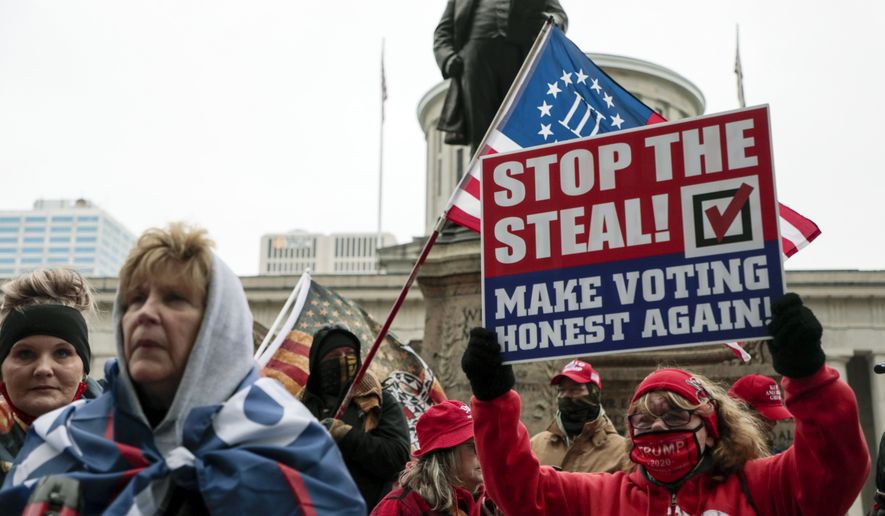More than a third of Republicans say they are more likely to vote for a candidate who says the 2020 election was stolen from former President Donald Trump, a new poll shows.
A Quinnipiac University poll released Wednesday found that 35% of Republicans say they are more likely to support a candidate who embraces the stolen election claims, compared to 17% who said they would be less likely.
The remaining 44% of Republicans in the nationwide survey of adults said it makes “no difference.”
Conversely, 81% of Democrats said they would be less likely to vote for a candidate who embraces the stolen election claim, while 2% said they would be more likely to back one. Forty-four percent of independents said they would be less likely to support a stolen-election candidate, while 11% said they would be more likely to back one.
Mr. Trump’s stolen election claims and efforts to challenge the results of the 2020 election have taken center stage on Capitol Hill, where the Democratic-led Jan. 6 committee is holding hearings examining the events that led to last year’s riot at the U.S. Capitol.
Democrats are hoping the findings will provide the public with a clear picture of the role Mr. Trump and his allies — including those in Congress — played in trying to overturn the election and inciting the attack.
Democrats also hope the finding will provide them with some cover heading into the midterm election where they are defending their majorities in the House and Senate.
The Quinnipiac survey findings are perhaps another warning sign for Rep. Liz Cheney of Wyoming, the co-chair of the Jan. 6 House select committee who faces a Trump-backed GOP primary challenge in August.
Others have benefited from embracing the stolen election claims.
The list includes Adam Laxalt, a former state attorney general, who last week won the Republican nomination for a pivotal Nevada Senate seat.
The Quinnipiac survey showed that overall 15% of adults said they would be more likely to support a stolen-election candidate, 45% said they would be more likely to oppose one, and 35% said it doesn’t make a difference.
The survey was conducted June 17-20 and included 1,524 adults. It has a margin of error of plus or minus 2.5 percentage points.
• Seth McLaughlin can be reached at smclaughlin@washingtontimes.com.




Please read our comment policy before commenting.